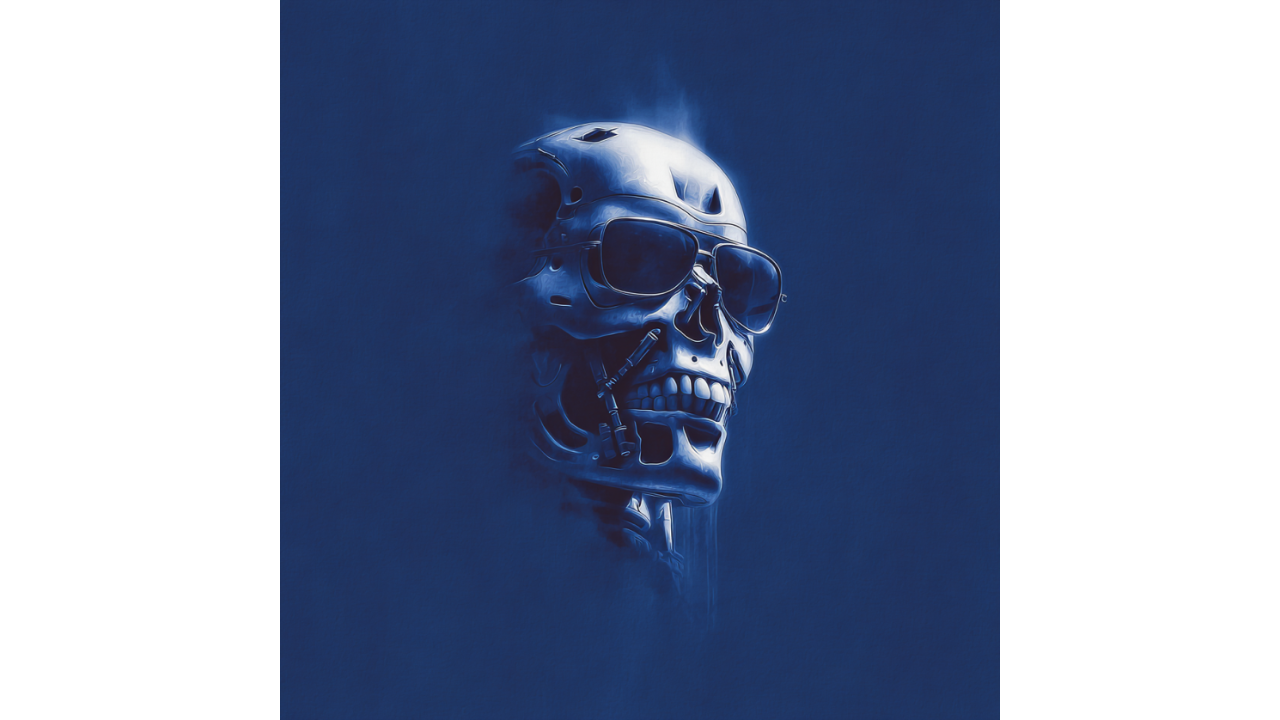Meta's Llama 4.X Rush: The Dangerous Stupidity of AI's Sprint to Nowhere
Here we are again, watching Silicon Valley's most predictable tragedy unfold in real time. Meta is "racing the clock" to launch Llama 4.X by year-end...
4 min read
 Writing Team
:
Aug 11, 2025 8:00:00 AM
Writing Team
:
Aug 11, 2025 8:00:00 AM

James Cameron just gave us the most deliciously hypocritical tech take of 2025, and honestly, we should probably thank him for the entertainment. While promoting his upcoming Hiroshima project to Rolling Stone, the director behind the Terminator franchise warned of a "Terminator-style apocalypse" if AI gets weaponized—apparently forgetting that he joined the board of AI company Stability AI less than a year ago.
The cognitive dissonance is so profound it makes Avatar's plot holes look like minor continuity errors. Cameron literally sits on the board of the company behind Stable Diffusion, actively helping develop the very technology he now claims could destroy humanity, and expects us to take his doomsday warnings seriously?
In his Guardian interview, Cameron identified three existential threats facing humanity: "climate and our overall degradation of the natural world, nuclear weapons, and super-intelligence." Notably absent from this apocalyptic trinity? Billionaire filmmakers who fearmonger about technology while simultaneously cashing checks from the companies developing it.
"I do think there's still a danger of a Terminator-style apocalypse where you put AI together with weapons systems, even up to the level of nuclear weapon systems, nuclear defence counterstrike, all that stuff," Cameron told Rolling Stone. The theater of operations is so rapid, he argues, that it would require super-intelligence to process the decision windows.
Here's the thing: he's not wrong about the dangers. But coming from someone who joined Stability AI's board in September 2024, it sounds less like genuine concern and more like a calculated PR move to distance himself from potential backlash while keeping those AI dividends flowing.
Cameron's relationship with AI reads like a masterclass in having your cake and eating it too. While warning about artificial intelligence's existential threats, he's simultaneously using it to cut VFX costs in half for his Avatar sequels. "If we want to continue to see the kinds of movies that I've always loved and that I like to make—Dune, Dune: Part Two, or one of my films—we've got to figure out how to cut the cost of that in half," he said on a recent podcast.
Translation: AI is dangerous enough to destroy humanity, but convenient enough to protect his profit margins. The man who created Skynet as a cautionary tale about unchecked technological development is now helping real companies build the actual infrastructure his fictional warning system predicted.
When Cameron joined Stability AI's board, CEO Prem Akkaraju gushed that "James Cameron lives in the future and waits for the rest of us to catch up." Now, apparently, the future involves Cameron catching up with his own contradictions.
Stability AI develops generative image and video models—the exact kind of "super-intelligence" technology Cameron warns could lead to our doom when weaponized. Yet somehow, when it's generating Avatar backgrounds or reducing his VFX budgets, the technology becomes benevolent innovation rather than existential threat.
The timing makes his warnings even more suspect. He joined Stability AI's board in September 2024 amid Hollywood tensions over AI use, positioning himself on the side of executives over creatives during ongoing industry disputes about AI's role in filmmaking. Now, months later, he's repositioning himself as the concerned futurist warning about AI's dangers.
Cameron's latest comments come while promoting "Ghosts of Hiroshima," Charles Pellegrino's account of the atomic bombing that Cameron plans to adapt for film. The parallel isn't subtle: nuclear weapons represented humanity's last existential technological leap, and now AI threatens the same kind of species-ending catastrophe.
It's smart marketing, connecting his historical war film to contemporary tech anxieties. But it's also transparent opportunism, using legitimate concerns about AI weaponization to generate buzz for his next project while downplaying his own financial involvement in the industry he's criticizing.
The most galling aspect of Cameron's warnings is the timing relative to Hollywood's recent labor disputes. When writers and actors struck partly over AI concerns in 2023, worried about studios using technology to replace human creativity and steal their likenesses, Cameron was notably absent from the conversation.
Instead, he was quietly positioning himself to profit from the technology workers feared. As one fan noted on social media, "The James Cameron news is such a bummer for a lot of reasons but I keep thinking about how he cut his teeth making models & other practical effects for Roger Corman & how that kind of human ingenuity is the exact stuff these AI guys completely devalue & want to replace with slop."
There's bitter irony in Cameron warning about Terminator-style scenarios while actively helping build the technological infrastructure that could enable them. His 1984 film was supposed to be a cautionary tale, not a business plan.
But perhaps that's the point. Cameron has always been better at identifying problems than avoiding them. He made a career out of pushing technological boundaries in filmmaking while simultaneously warning about technology's dangers through his narratives. The contradiction isn't a bug—it's a feature.
For those of us watching from the marketing industry, Cameron's pivot represents everything wrong with how tech leaders approach AI ethics. They want credit for identifying problems without accepting responsibility for contributing to them. They warn about existential risks while optimizing their own financial exposure to the upside.
It's the ultimate have-your-cake-and-eat-it-too approach: profit from AI development while maintaining plausible deniability about the consequences. Cameron gets to be both tech innovator and worried prophet, depending on which audience he's addressing and which project he's promoting.
Cameron's warnings about AI weaponization aren't wrong—they're just incomplete. Yes, autonomous weapons systems present legitimate existential risks. Yes, the speed of modern warfare might require super-intelligent decision-making that removes humans from life-and-death choices.
But his selective concern reveals the fundamental dishonesty of his position. If AI truly represents an existential threat comparable to nuclear weapons, why is he helping develop it? If Stability AI's technology is safe enough to warrant his board participation, why the apocalyptic warnings about similar systems?
The answer is simple: because nuanced positions don't generate headlines, and contradictory messaging allows maximum positioning flexibility. Cameron can warn about AI dangers when promoting war films and celebrate AI innovation when promoting tech partnerships.
Ready to navigate AI marketing without the Hollywood hypocrisy? Winsome Marketing's growth experts help companies develop consistent, authentic positions on emerging technology that don't require board meetings to revise. Because the best marketing strategy isn't playing both sides—it's picking a principled position and sticking to it.

Here we are again, watching Silicon Valley's most predictable tragedy unfold in real time. Meta is "racing the clock" to launch Llama 4.X by year-end...
-3.png)
Well, well, well. Just when you thought 2025 couldn't get any more dystopian, our resident tech overlord Elon Musk has gifted us with something that...

Jeff Bezos is bored of chatbots. So he's spending $6.2 billion to build AI that doesn't just talk—it makes things.